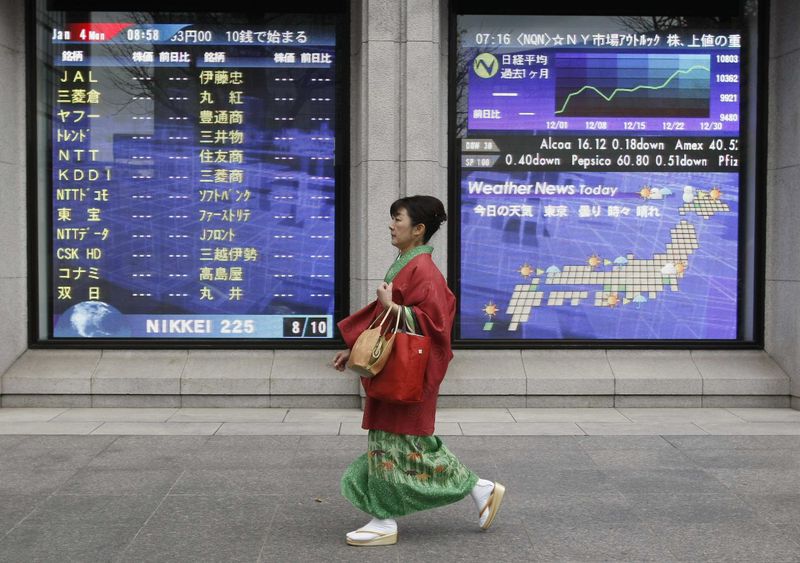© Reuters.
Investing.com– Most Asian stocks fell on Tuesday tracking weaker-than-expected business activity readings from China, although the Nikkei reversed most early losses after the Bank of Japan struck a less hawkish tone than markets were expecting.
Chinese stocks sink as PMI data shows economic weakness
China’s unexpectedly contracted in October, while slowed substantially, purchasing managers index (PMI) data showed.
The and indexes fell 0.5% and 0.3%, respectively, while the index lost 1% as the data showed that recent stimulus measures from Beijing had provided only a limited boost to Chinese businesses.
Weakness in Chinese markets spilled over into broader Asia, given the country’s role as a key trading hub for the region.
Concerns over China also largely offset a strong overnight lead-in from Wall Street, which benefited from a resurgence in technology stocks. Focus this week is also on key quarterly earnings from iPhone maker Apple Inc (NASDAQ:), which has several major suppliers in Asia.
South Korea’s , which is heavily exposed to Chinese trade, sank 1.1%, as positive earnings from index heavyweight Samsung Electronics (KS:) provided a limited boost.
Shares of the electronics giant fell 1% after it clocked its best quarterly profit this year, and said that an artificial intelligence boom will support chip demand through 2024. But its profit also slumped nearly 80% from the same period last year.
and data from South Korea showed some signs of a recovery.
Australia’s index was trading close to flat, while India’s index opened a shade higher.
Japanese stocks rise past weak data as BOJ sings dovish
Japan’s rose 0.7%, while the broader added 0.6% after the Bank of Japan kept interest rates negative and made minimal tweaks to its yield curve control policy.
While the BOJ signaled it will allow more flexibility in its YCC operations, the move largely disappointed investors hoping for a more aggressive change in the policy. The BOJ also said it will continue with its current pace of asset purchases.
This offered much relief to Japanese stocks, given that it heralds easy monetary conditions for the near-future, in contrast to rising interest rates in most other major economies.
Local stocks cruised past data that showed both and grew less than expected in September.
Investors also largely disregarded the BOJ’s warning that inflation will be higher than initially expected, and that economic growth was biased to the downside in the coming years.
Still, bigger gains were limited as investors hunkered down before the conclusion of a this Wednesday. While the central bank is set to keep rates on hold, it is also expected to reiterate its higher-for-longer rate stance- a trend that bodes poorly for Asian markets.
Read the full article here




